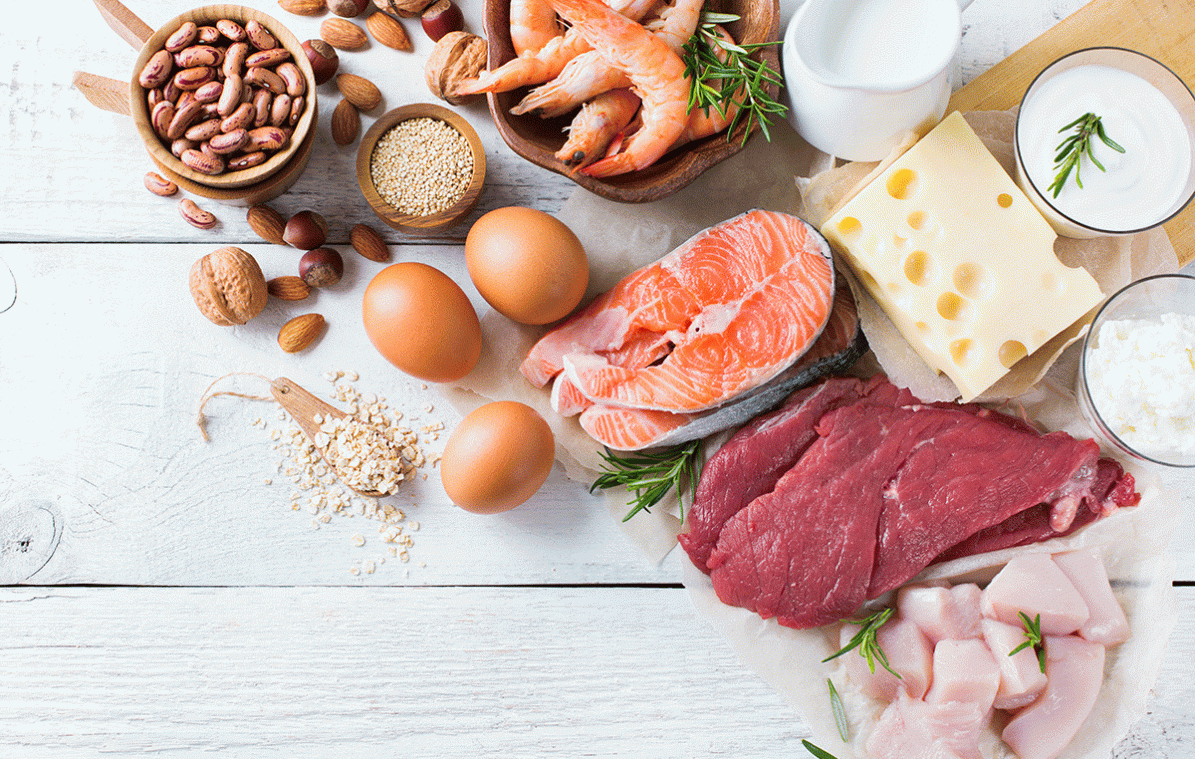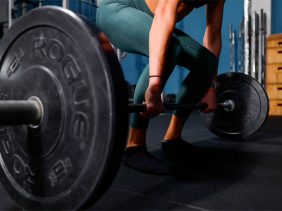Vitamin B12: Everything you need to know!
 ©Aamulya
©Aamulya
If you want to start each morning feeling fresh and ready to take on the day, your body needs a variety of micronutrients, and vitamin B12 is a particularly important one. Let’s explore what vitamin B12 does to your body, what foods contain vitamin B12, and why it’s so important, especially in a vegan diet.
What is vitamin B12?
Do you feel exhausted, low in energy, and weak from time to time? A vitamin B12 deficiency may be the reason. Hardly any other vitamin has such a strong influence on your well-being and physical performance as vitamin B12. The water-soluble vitamin is also known as cobalamin and is involved in numerous metabolic processes.
Food sources
Vitamin B12 is produced by microorganisms – small organisms, such as bacteria, which you can only recognize under a microscope. These microorganisms are only found in sufficient quantities in animal-based foods. If you are a vegetarian or vegan, it’s especially important to keep an eye on your B12 levels. In general, animals consume vitamin B12 through supplemented food. Ruminants, such as cows, can produce vitamin B12 themselves.
So why can’t the human body do the same?
Many people do carry the bacteria needed to produce the vitamin, but only in their large intestine, where it can’t be absorbed or made available to the body.
Vitamin B12 deficiency: symptoms and causes
It’s not uncommon not to get enough vitamin B 12. Vegetarians and vegans as well as older adults are most often the ones affected. The symptoms of vitamin B12 deficiency include physical and mental effects.
- Fatigue
- Difficulty concentrating
- Reduced cognitive function
- Depression
- Asthma
- Cramps
- Tingling and numbness
Low levels of vitamin B12 can have many causes, but these are the four primary causes:
- nutritional deficiency
- disordered absorption of vitamin B12
- intestinal disorders
- disordered utilization
Vitamin B12 overdose
Overdosing on vitamin B12 is quite rare. An animal experiment showed no side effects even when the subjects received a thousand times the recommended dosage. Any extra that your body can’t use goes through your kidneys and out through your pee.
Daily requirements
To reduce the risk of vitamin B12 deficiency, the DGE (German Nutrition Society) recommends a daily vitamin B12 intake of 3 micrograms – that would be 10g of your favorite Camembert, for example. For certain groups of people, however, there is an increased need or an increased risk of developing a deficiency.
Would you like to know whether you need to pay special attention to taking vitamin B 12? If you fit into any description on this list, you might need to boost your levels through food or supplements.
- Vegetarians and vegans
- (Performance) athletes
- People with increased stress levels
- Older adults
Our tip: A great alternative to swallowing pills. Drop by drop. Our Vitamin Drops can help you cover your daily needs. Easy to dose: a few drops straight into your mouth, in your yogurt, or in your shake. Our vegan drops are ideal for a busy everyday lifestyle or if you would rather avoid taking the supplement in capsule form.

Vitamin B12 supplements
If you eat a healthy and balanced diet, usually you don’t need vitamin B12 supplements. However, if you do not get enough vitamin B12 from your diet, you should consider finding alternative sources of vitamin B12. There are now several kinds of supplements used to treat low levels. The most common are vitamin B12 tablets, vitamin B complex capsules (which may contain vitamin B6, folic acid, or other B vitamins) and vitamin B12 injections, which you can get from your GP.
In addition to these classic vitamin B12 supplements, fortified foods and toothpastes are also options. But there are still very few (long-term) studies that confirm their effectiveness. In any case, we recommend that you regularly check the amount of vitamin B12 in your body and discuss the best possible treatments with your physician.
How to check your vitamin B12 level
Holo-TC test
An early and reliable marker for vitamin B12 deficiency is the Holo-TC test. Unlike the serum test, it measures only the form of vitamin B12 that is actually usable by the body.
MMA test
A very simple and useful option, the MMA urine test measures methylmalonic acid. An elevated MMA value indicates low vitamin B12 levels. Just like the Holo-TC test, this version only measures active vitamin B12.
Effects of vitamin B12
What does vitamin B12 do in the body? Here’s a look at its key functions:
Vitamin B12…
…contributes to the healthy functioning of the nervous system.
Do you feel stressed out and tense in your everyday life? Then it’s especially important to get a sufficient supply of the brainfood vitamin.
…contributes to a normal formation of red blood cells.
Iron, folic acid, and vitamin B12 play a central role in the formation of red blood cells. In this metabolic process, vitamin B12 is involved in cell division – so getting enough B12 can ensure that your body has a sufficient red blood cell supply. Red blood cells play the vital role of transporting oxygen to your organs and muscles.
…contributes to a normal homocysteine metabolism.
With a vitamin B12 deficiency, homocysteine metabolism, which converts the amino acid homocysteine into methionine or cysteine, cannot take place as usual. The research is still ongoing to find out whether this is a risk factor for various diseases.
…contributes to a normal energy metabolism.
Be it during your workout, at work, or in your free time – your body depends on absorbing vitamin B12 to tackle your everyday tasks full of energy. It is an essential micronutrient and promotes healthy energy levels.
Vitamin B12 for your workouts
The B vitamins 2, 6, and 12 play a central role in your physical performance. You lose more minerals and vitamins when you exercise. So it’s important that you pay attention to your vitamin intake when exercising regularly. Vitamins help to process fats and amino acids and are especially important for muscle building.
Advantages to building muscle
- Concentration
- Motivation
- Endurance
- Strength
If you want to feel a real sense of achievement with your workouts, we recommend our free Body Check, which will help you calculate your BMI and get individual training and nutrition tips.
Conclusion
- Vitamin B12 is a water-soluble vitamin.
- It is also known as cobalamin.
- B vitamins perform vital tasks in the body’s metabolic processes.
- Without supplements, you can only get adequate amounts in your diet from animal products.
- Therefore, vegetarians, vegans, and elderly people are particularly at risk of a deficiency of cobalamin.
Sources for this article
We at foodspring use only high-quality sources, including peer-reviewed studies, to support the facts within our articles. Read our editorial policy to learn more about how we fact-check and keep our content accurate, reliable, and trustworthy.






















